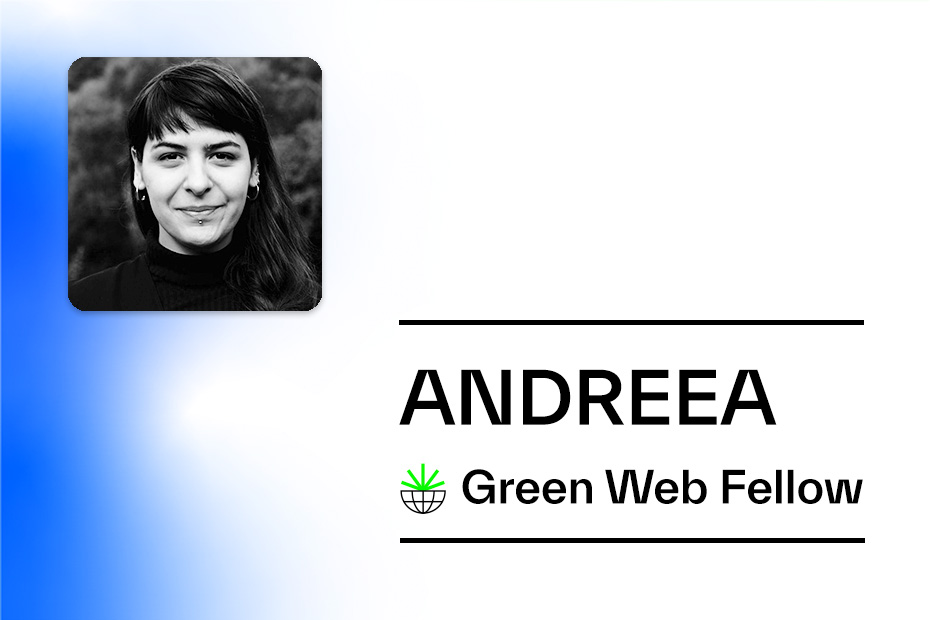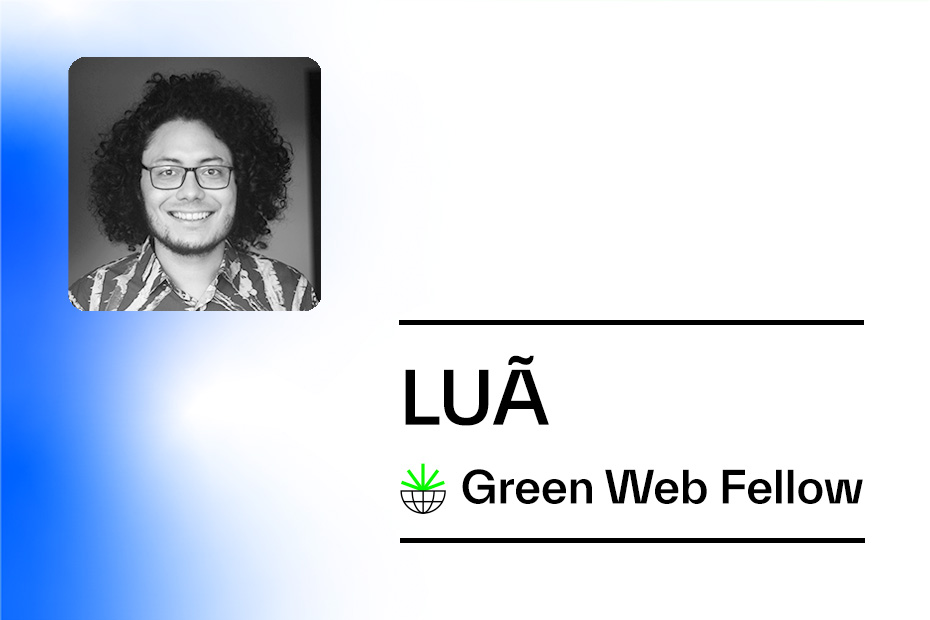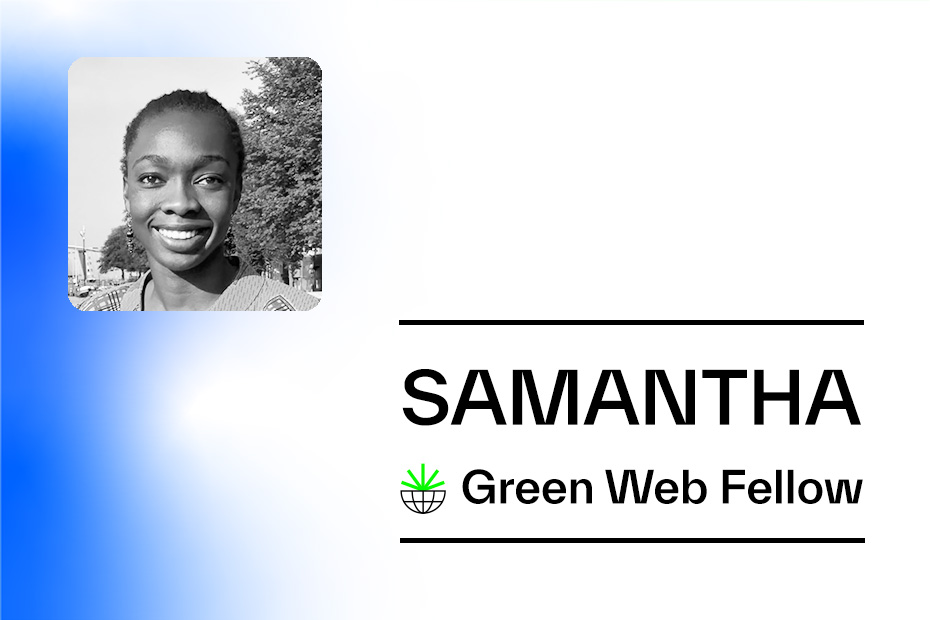While I reflected on my fellowship project over the past few weeks, I had an interesting discussion with a friend who works for a nonprofit about creating impact when you are a mid-level professional. Our reflection was that in any case, as a professional, you care for your impact as an individual while also being directly affected by more-top down measures and regulations through your work. The question remains: what is your degree of influence?
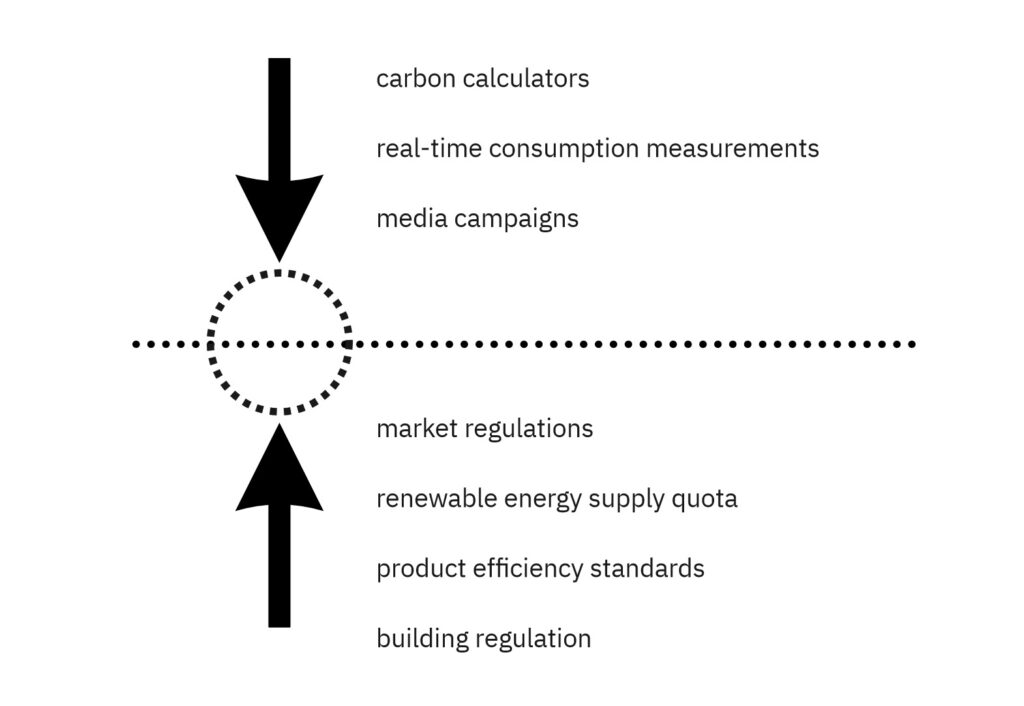
Thinking about the individuals and organizations in the middle ground is important, especially when top-down and bottom-up approaches in terms of environmental changes have their successes and drawbacks. For example, while efforts to ditch the plastic straw are being met with responses regarding the higher impact of the plastics industry, alternative responses are needed, and those from mid-level practitioners represent a great opportunity, especially in digital tech, due to the level of expertise and a capacity to help steer business models and corporate decisions.
In principle, Internet practitioners can help connect between the low-impact, high-agency grassroots movements and the more impactful yet slower top-down decision-makers. Parag & Janda (2010) call this type of strategy a “middle-out strategy”: spaces where individuals have enough agency to exert positive change without being too tied up to structural limitations from the industry. This can be especially true in the case of Internet practitioners from the Global South. For instance, much of the growing tech workforce is highly educated, even more so in developing countries (Berg et al., 2021). This can undoubtedly be the case in other non-technical areas such as policymaking, digital marketing or cyberlaw.
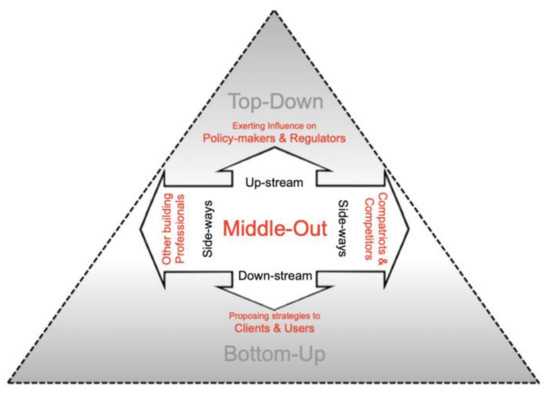
Internet practitioners are in charge of standards and practices for the industry as a whole, which impacts all levels: business models, products, and lifestyles. As people from developing countries enter the online labor market, we must think of the fact that the effects of climate change might be part of their personal experiences, and as I’ve explored before, there is value in how we process our personal experiences as a tool for community action. This is why we need to consider asking questions such as the following:
- Does my work with code, spreadsheets or emails over the web make any difference for the environment?
- How does the technology that our team decides to use affect the environmental outcome of our organization?
- What is the relation between my work for a foreign firm and social and environmental justice?
- As a tech worker from a developing country, how could I become an agent of change at a greater level?
These are the questions that my Fellowship project will address. I will discuss them in my next post.
References
- Barua, A. (n.d.). The tech workforce is expanding—And changing—As different sectors battle for talent. Deloitte Insights. Retrieved May 16, 2022, from https://www2.deloitte.com/us/en/insights/economy/spotlight/tech-workforce-expanding.html
- Berg, J., Hilal, A., El, S., Horne, R., & others. (2021). World employment and social outlook: Trends 2021. International Labour Organization.
- Parag, Y., & Janda, K. B. (2014). More than filler: Middle actors and socio-technical change in the energy system from the “middle-out.” Energy Research & Social Science, 3, 102–112. https://doi.org/10.1016/j.erss.2014.07.011
